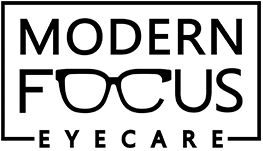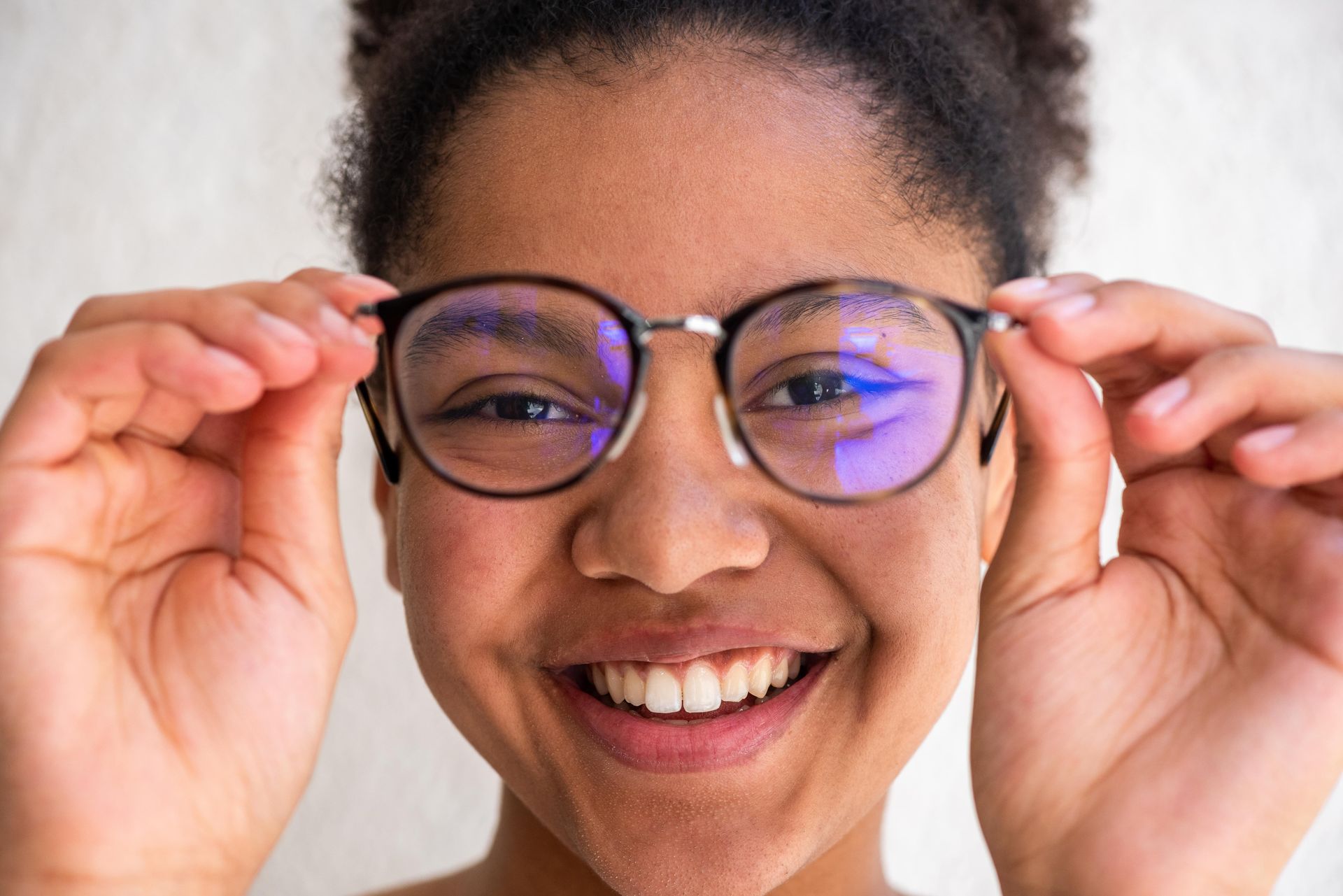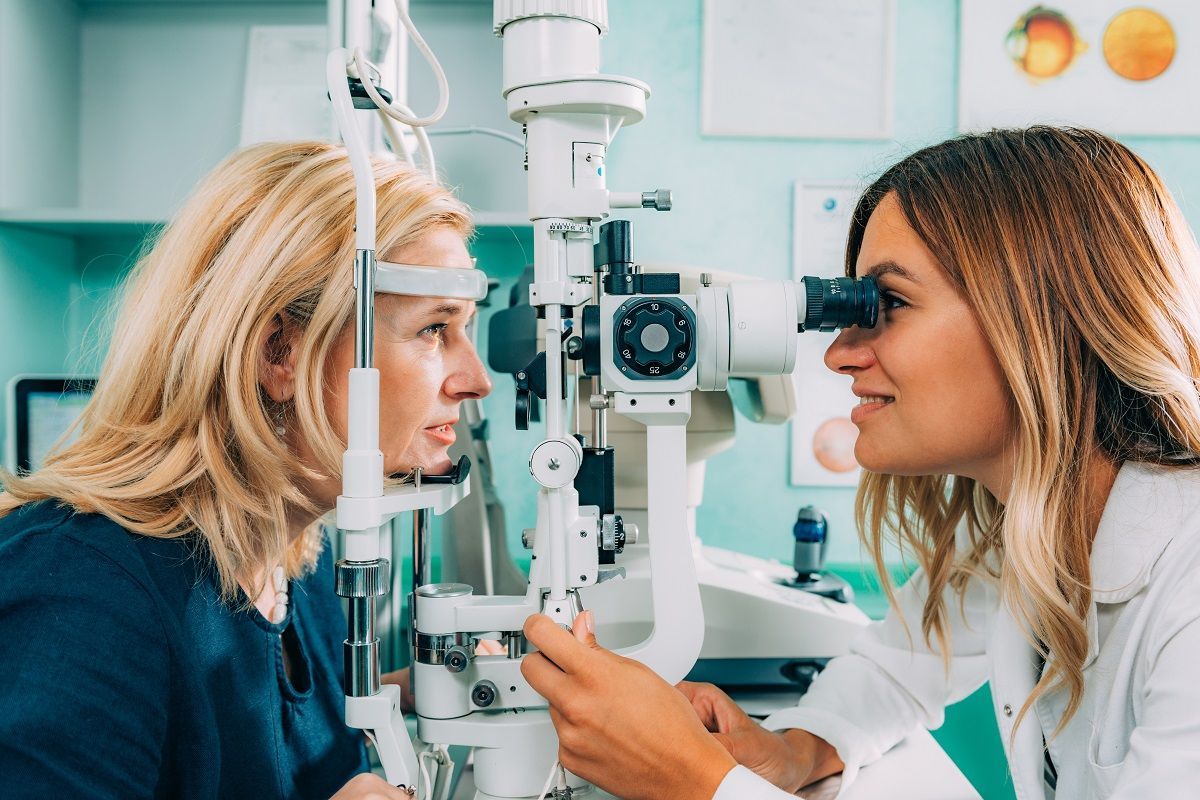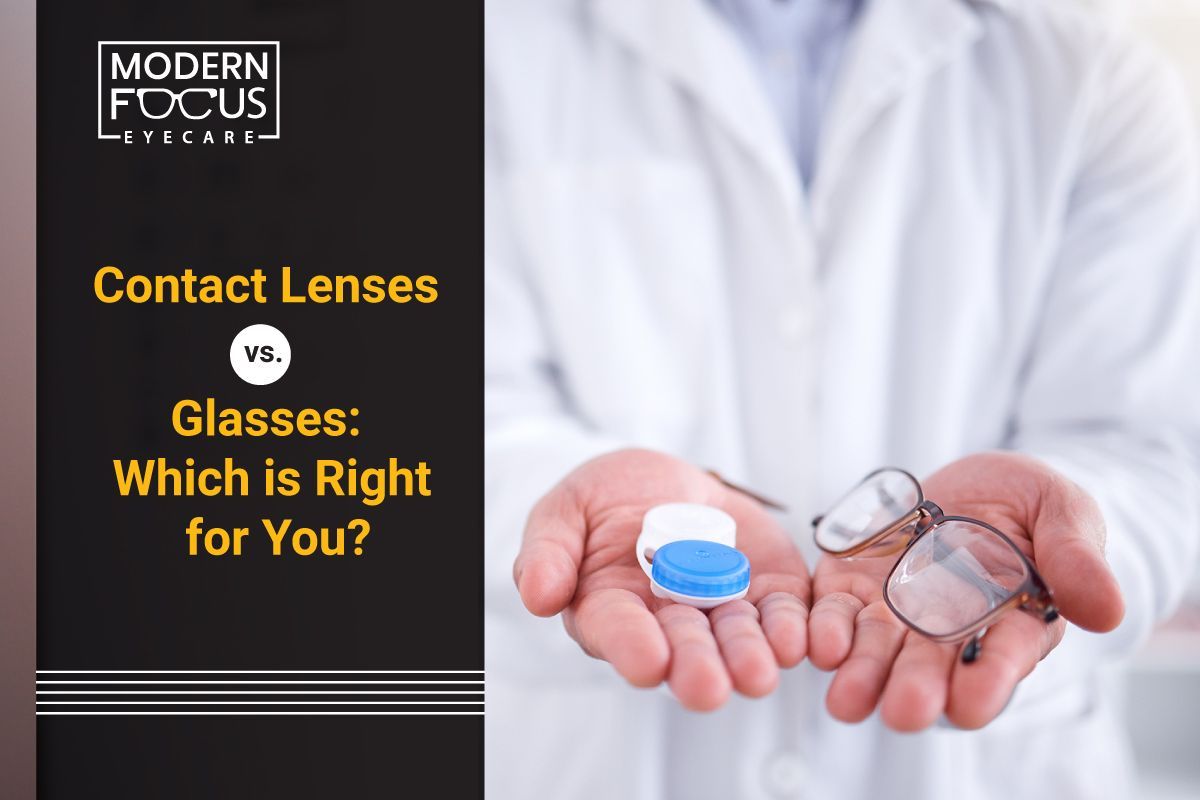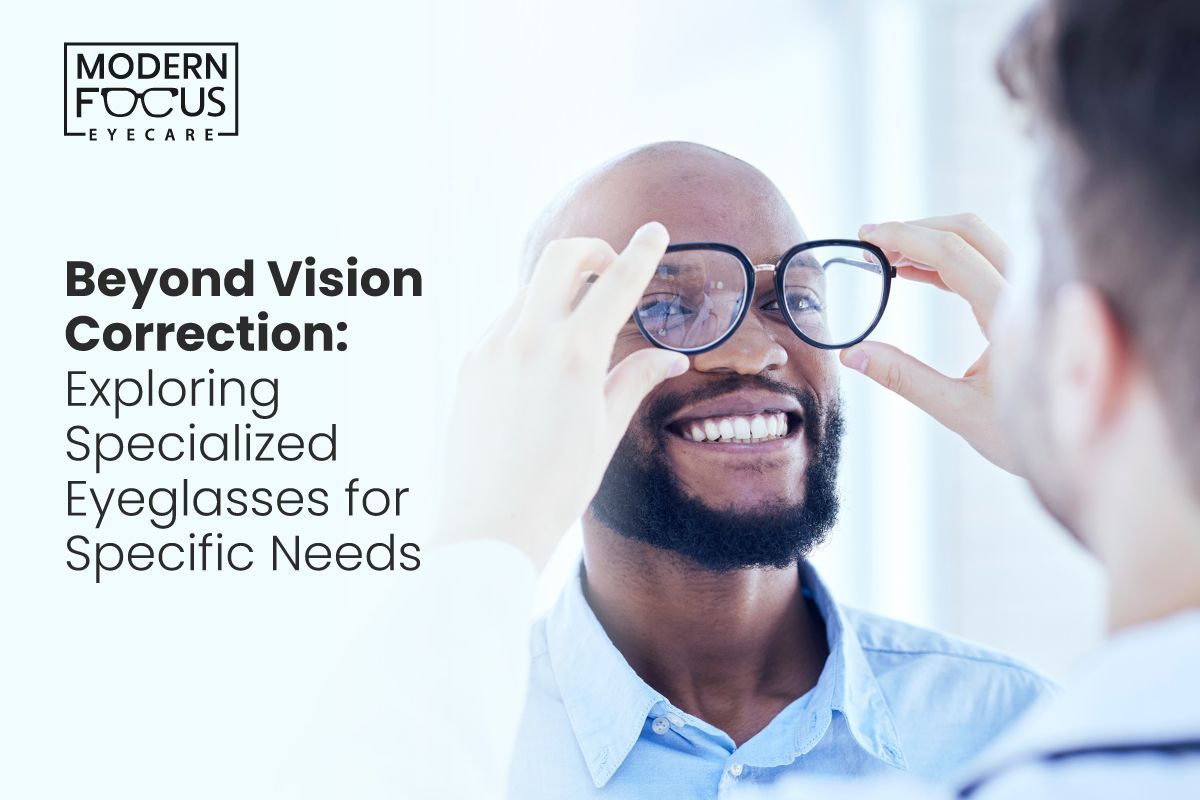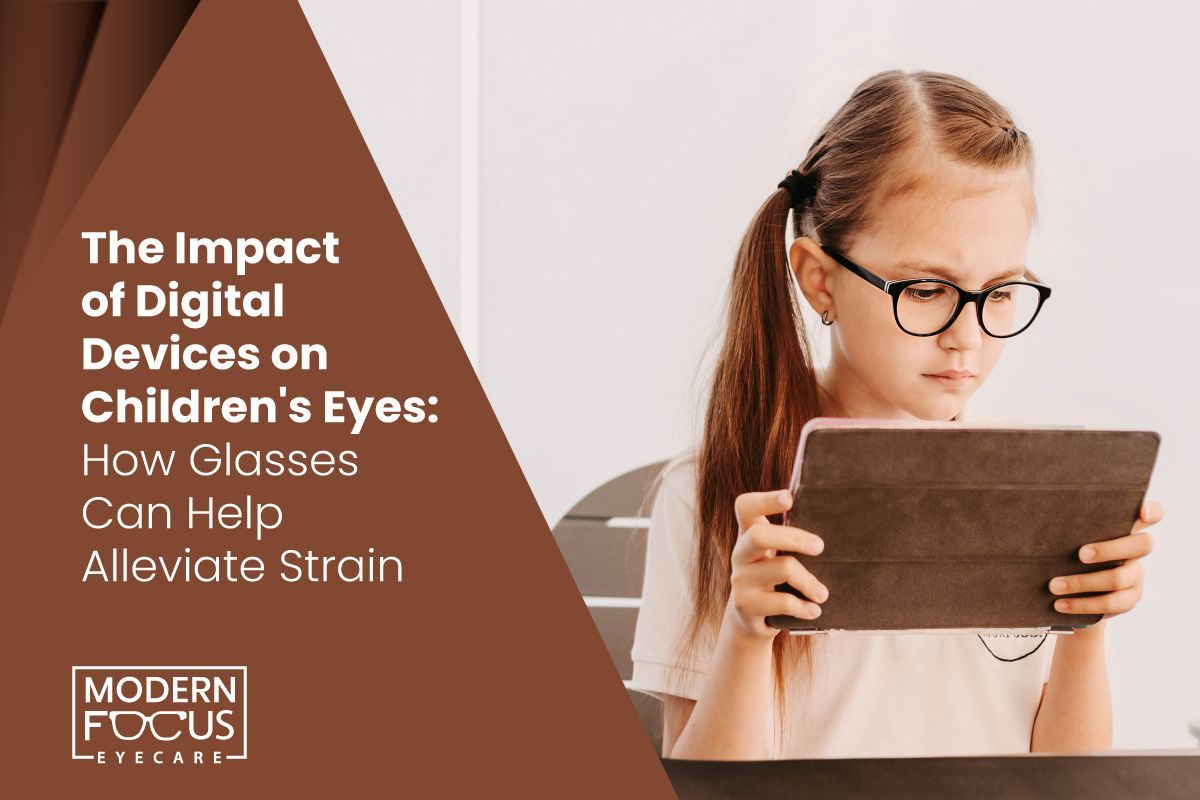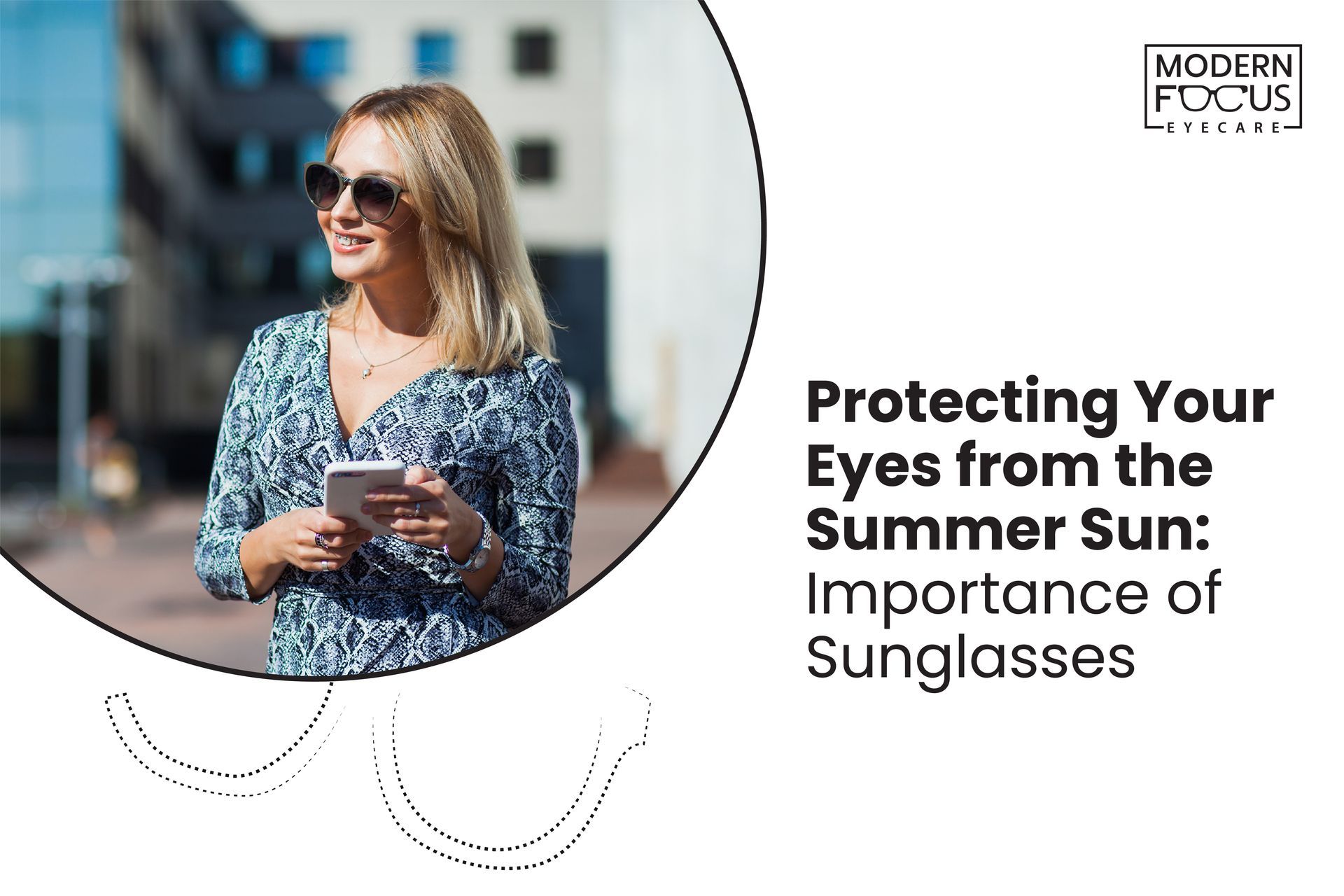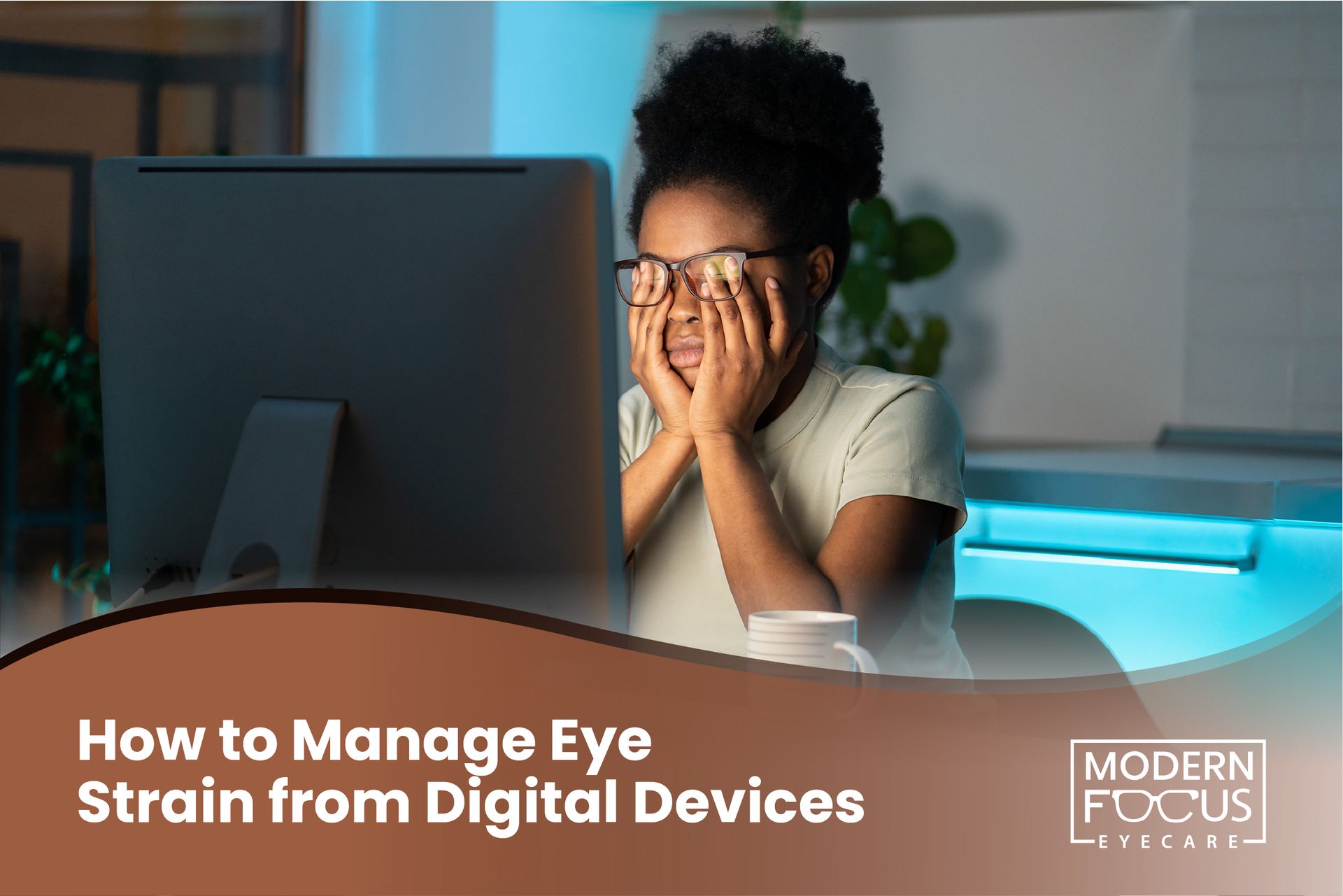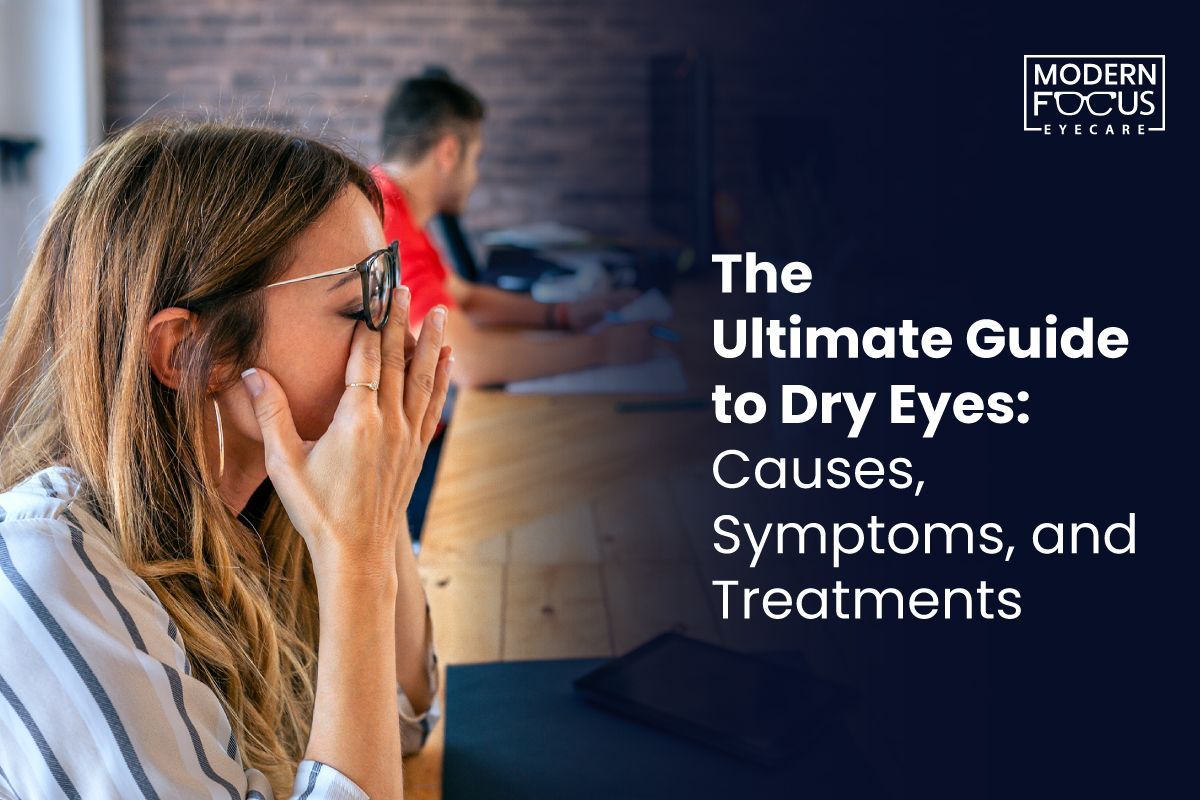Understanding Myopia: Causes, Symptoms, and Risk Factors
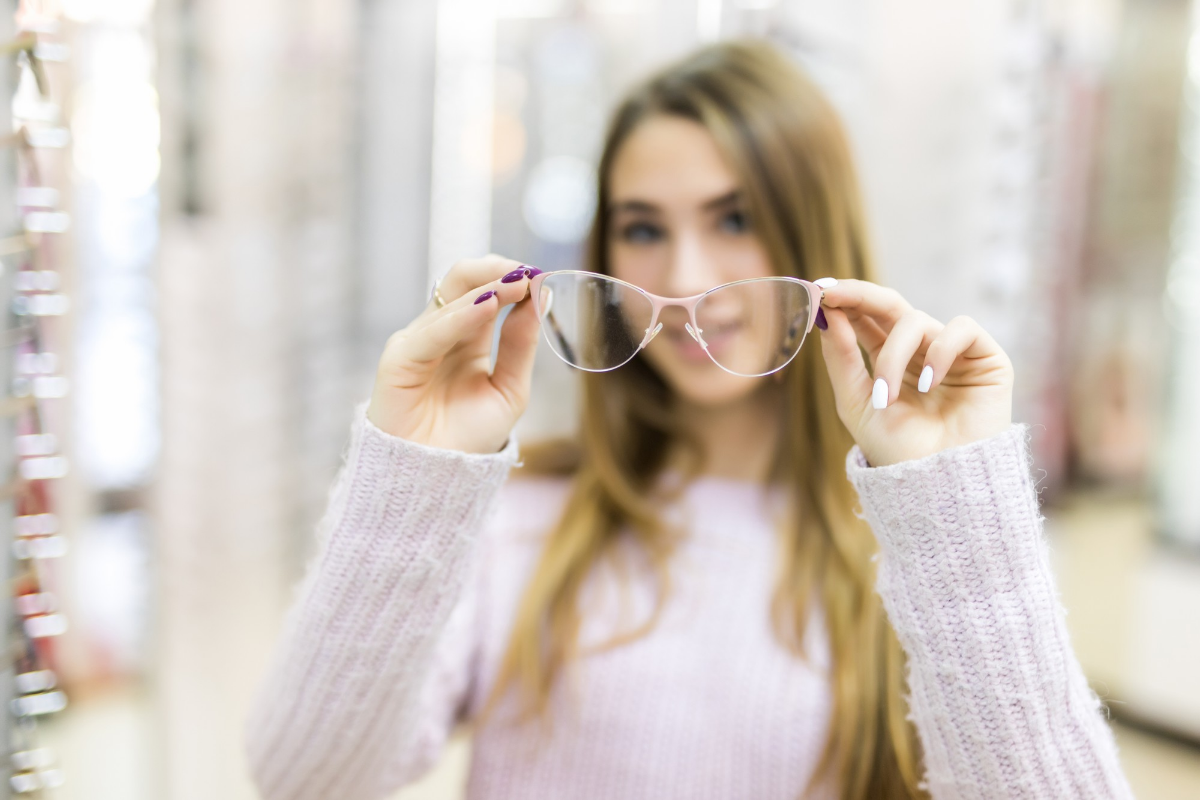
In a world dominated by screens and digital devices, it's no wonder that myopia, or nearsightedness, has become a prevalent vision issue for many people around the world.
Studies say a significant portion of the American population (about 41.6%) experience nearsighted vision. Early intervention and preventative measures are our best strategies against myopia, and it starts with learning the causes, symptoms, and risk factors.
Here's everything you need to know about overcoming the challenges of myopia to help you achieve a clearer vision for many years to come!
What is Myopia?
Myopia is a refractive error where distant objects appear blurry while close ones appear clear. This condition occurs when the eye's shape causes light rays to bend (refract) incorrectly. Myopia causes the images to focus in front of the retina rather than directly on it.
What Are the Causes of Myopia?
Several factors contribute to the development of myopia. Some people are born with it, while others acquire it later in life.
Genetic Predisposition
One of the primary factors leading to myopia is genetics. If one or both of your parents have myopia, you will likely develop it, too. Specific genes influence myopia development, making it more common in some families.
Environmental Factors
The modern lifestyle plays a significant role in the increasing prevalence of myopia. Prolonged and excessive near work, such as reading, computer use, and smartphone browsing, can contribute to myopia development, especially in children. Spending more time indoors with less natural light puts you at risk of developing this eye condition.
Myopia Symptoms
Do you ever squint to read a street sign or struggle to see objects in the distance? These could be early signs of myopia, also known as nearsightedness. Recognizing the symptoms of myopia is crucial for timely intervention.
Common symptoms include:
- Blurred Vision: Distant objects appear unclear, while close-up objects remain in focus.
- Squinting: Struggling to see clearly may lead to squinting to improve focus.
- Headaches and Eye Strain: Constantly straining your eyes to see clearly often leads to headaches and fatigue.
- Difficulty Seeing at Night: Myopia also affects night vision, making it harder to see in low-light conditions.
Risk Factors
Many factors increase the risks of developing myopia, from prolonged periods of screen time to a lack of outdoor activity. Understanding these factors helps you assess your risk of developing the condition so you can take the necessary steps to preserve your eye health and overall vision quality.
Age
Myopia often develops during childhood and adolescence and may progress until the early twenties. Like many adverse eye conditions, age is a primary factor in myopia development.
Family History
As mentioned earlier, if one or both of your parents have myopia, you may develop it, too.
Close-Up Activities
Spending excessive time on activities that require intense focus on close objects, such as reading, using computers, or playing video games, often contributes to myopia development.
Lack of Outdoor Time
Spending less time outdoors, particularly in natural light, may increase your risk of developing myopia.
Ethnicity
Certain ethnic groups, particularly those of East Asian descent, have a higher chance of developing myopia.
Prevention and Management
While genetics and environmental factors are the typical culprits behind myopia, there are steps you can take to reduce its progression.
Outdoor Time
Engage in outdoor activities to help protect your eyes against myopia. Increased dopamine production (from outdoor activities) protects your eyes from induced myopia.
Blink Breaks
Take regular breaks from close-up work to blink and refocus your eyes. Your eyes need to rest periodically to function optimally.
Proper Lighting
Ensure adequate lighting when engaging in close-up activities. Your vision will benefit from better lighting, especially while reading from a digital screen or book.
Regular Eye Exams
Schedule regular eye checkups to monitor vision changes and receive timely treatment. Eye doctors can recognize early signs of myopia or other similar conditions.
A Brighter Future Against Myopia
Learning the critical points of myopia empowers you to take proactive steps in preserving your vision. Be aware of the contributing factors, then apply the preventative measures you learned in this blog to significantly reduce the impact of myopia on your visual health.
Remember, early intervention is vital. Never hesitate to consult an
eye care specialist if you experience any symptoms of myopia. Your eyesight is a precious gift, and with the proper knowledge, you can safeguard it for a lifetime.
FAQs
Q: How is myopia diagnosed?
A: Optometrists or ophthalmologists diagnose myopia through a series of eye examinations. This approach involves several tests to measure visual acuity and assess the refractive error.
Q: Can myopia be corrected with glasses or contact lenses?
A: Yes. Eye doctors can correct myopia with prescription glasses or contact lenses. These treatment methods help focus light correctly onto the retina, allowing clear vision.
Q: Are there surgical options for myopia correction?
A: Yes, there are surgical options for myopia correction, such as LASIK, PRK, and implantable lenses. These procedures reshape the cornea or implant a lens inside the eye to correct vision.
Q: Can myopia lead to other eye problems?
A: High levels of myopia increase the chances of developing other adverse eye conditions, such as retinal detachment, glaucoma, and cataracts. Regular eye examinations are essential for monitoring and managing any potential complications.
Q: Can myopia worsen over time?
A: Yes. Myopia can worsen over time, especially during childhood and adolescence. This progression is known as "myopic shift." It's vital to monitor vision regularly, especially in young children.
Q: Can myopia be managed in children?
A: Yes, myopia management strategies, such as orthokeratology, specialized contact lenses, and atropine eye drops, are ideal in children to slow down myopia progression.
Q: Is there ongoing research on myopia?
A: Yes. There is ongoing research to understand myopia's causes better and develop more effective treatments. This method includes studies on genetics, environmental factors, and novel interventions.
A Clearer Vision Leads to A Brighter Future!
You're on the right track if you're searching online for "high myopia," "myopia treatment," and "myopia bilateral."
Modern Focus Eyecare offers accurate diagnoses for myopia and similar conditions to provide you with the ideal treatment you deserve. We have a wide array of contact lenses and eyeglasses to help correct nearsightedness effectively. Our
eye care professionals are happy to help you choose the right myopia correction option that suits your style and needs.
If you're ready to see the world clearly and enjoy its vivid beauty,
request an appointment here!
If you have any questions, schedule an appointment
With Our Eye Doctor or Call Us At (972) 617-8000
Modern Focus is your one-stop Eyecare Center in Texas. We have a team of highly-experienced optometrists to examine, diagnose, treat, and manage diseases, injuries.
Useful Links
Our Eye Services
Copyright © 2021 Modern Focus. All rights reserved.

